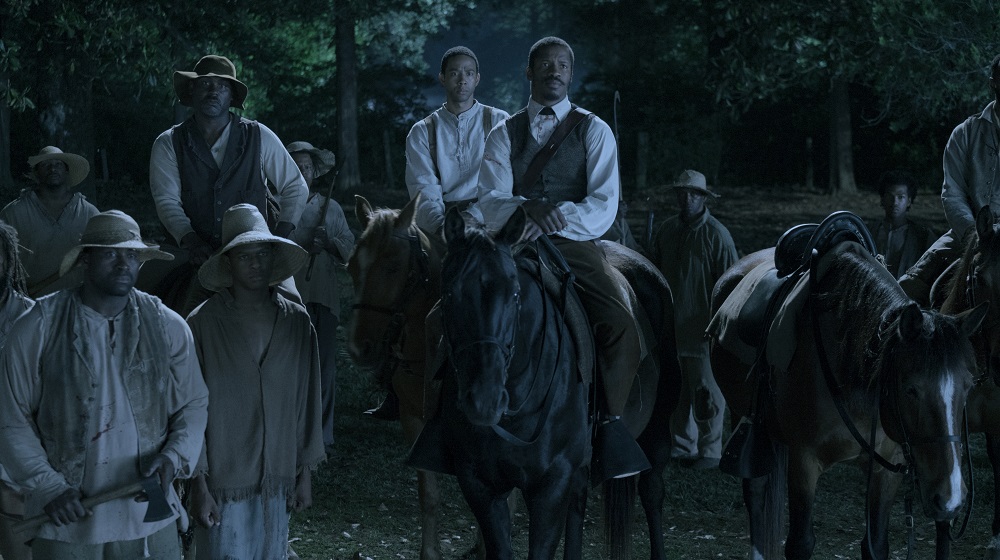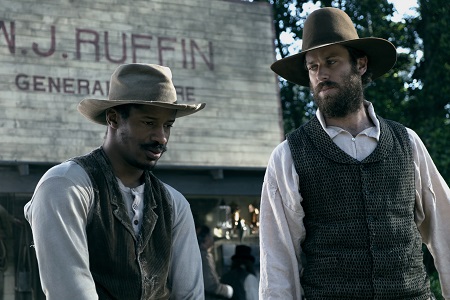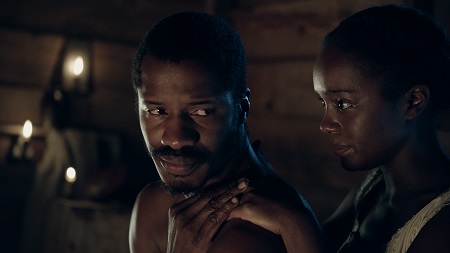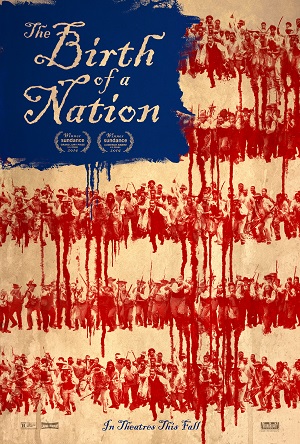
Powerful Birth of a Nation an Uncomforting History Lesson
Nat Turner’s slave rebellion in Southampton County, Virginia occurred on August 21, 1831. It lasted just under 48 hours, and by the time it was finished around 70 slaves went from plantation to plantation and killed roughly 60 or so men, women and children during the uprising. In the aftermath of the rebellion, Virginia executed 56 Black slaves suspected of taking part, while over 200 others were killed by angry mobs. Turner himself was hanged on November 11 of that year, his body beheaded, flayed and dismembered, receiving no official burial, his skull rumored to have past from hand-to-hand over the past 180-plus years, and according to a post on Wikipedia last reports having it being held in the collection of a planned civil rights museum scheduled to be built in Gary, Indiana.
The Birth of a Nation attempts to tell Nat Turner’s story. A labor of love for actor-turned-director Nate Parker (The Great Debaters), the movie was the toast of the Sundance Film Festival back in January, being picked up for distribution by Fox Searchlight and immediately christened an Oscar frontrunner even though there were still 11 more months of theatrical releases to sort through. A vital movie, maybe even an important one, Parker’s directorial debut is visually impressive, viscerally hypnotic and emotionally complex. It is also not the instant masterpiece it was initially pegged to be, and that’s even before the filmmaker’s own complex, potentially damning personal history is entered into the equation.
I’m going to try and judge The Birth of a Nation on its own merits. At the same time, it’s admittedly difficult to not let the information that has come to light regarding the 1999 rape allegation concerning Parker and his co-writer Jean McGianni Celestin while the two were roommates and wrestling stars for Penn State University influence my perspective of the finished feature. The specifics are public record, and they are as seedy and as disturbing as you’d imagine, the revelation that the woman who accused them committed suicide in 2012 beyond upsetting. So, while I’d like to claim I’m treating the movie with total impartiality, that simply wouldn’t be true, and I honestly can’t say if my reaction to Parker’s opus would have been different had I never known anything about any of this.
I’d like to think I’d still have taken Parker to task for constructing one-dimensional female characters who only appear to exist for the sole purpose of moving all of the male characters, namely the protagonist Nat Turner himself, to take up arms and plant a few of the seeds that would eventually grow into the Civil War. The character’s wife, Cherry (Aja Naomi King), starts out being an intriguing figure only to quickly be forgotten about for long stretches of the narrative. The love between her and Turner never feels real, doesn’t blossom into anything deep or long-lasting, their personal connection nothing more than a device helping fuel the slave’s anger as he grows to believe raising arms against his people’s oppressors is the only course of action remaining to them.
But there is so much the movie gets right, so much that is electric and vividly hypnotic, these issues aren’t nearly as disastrous as they otherwise might have been. The central story following Nat Turner’s relationship with his owner, the constantly inebriated Samuel Turner (Armie Hammer), is remarkably well told, especially as it concerns his transformation into a respected preacher. The sections where the two travel from plantation to plantation so Turner can use the Bible to preach servitude to his fellow slaves is absolutely horrifying on a number of levels, each adding a layer of depth and understanding that is positively undeniable.
As for the rebellion itself, it is marvelously depicted, never letting up for a moment as Parker showcases the grotesque nuts and bolts of what transpired over those bloody two days. The filmmaker doesn’t water things down, and it becomes fairly clear just how brutal Nat Turner and his men were as they sliced and diced their way through as many plantation owners and their families as they could. At the same time, Parker refuses to sensationalize any of this, allowing viewers to come to their own understanding as to why this was Turner’s chosen course of action for he and his men, allowing for a deeper emotional connection between the viewer and the main character in the process.
I find it difficult to say just how good Parker is as Nat Turner. In the past, I’ve found him to be excellent in a variety of notable supporting roles in pictures as varied as The Great Debaters, Arbitrage, Ain’t Them Bodies Saints and Beyond the Lights, but I admit to not knowing if I’d have felt the same if I knew then what I do now about his past. Same time, Parker remains a strong actor, one who manages to commit completely to the various roles he chooses to portray, and that he does the same here is hardly a surprise.
But what to make of the two rape sequences that happen in the film, for which there’s no real way to ascertain the historical accuracy of? While I do not fault either Parker and Celestin for including such a depiction, the horrors of slavery in the United States is filled with inhuman stories of depravity and terror that go far beyond anything showcased here, the fact they only dwell on how these incidents affect the men in each woman’s life is both insulting and uncomforting for a multitude of reasons. Yet, while I’d like to think my unhappiness with these sequences would exist without knowing about the Penn State incident, the fact I do makes them feel all the more egregiously unfortunate.
All of which has me questioning whether or not I should be reviewing the film in the first place. I will say, especially considering what is happening in the world right this second, with the political atmosphere being what it is, with athletes kneeling for the national anthem and Black Lives Matter marching in cities across the U.S., The Birth of Nation is hitting theatres at just the right moment. While I’m not entirely certain the lessons of Turner’s rebellion are ones that should be applied now, it’s just as clear they should still be looked at and analyzed. Whether Parker, considering his own complicatedly sordid history, was the one to bring the story to the screen is an entirely different question, one that I don’t think any of us will feel comfortable answering for quite some time to come.
Film Rating: 2½ (out of 4)








